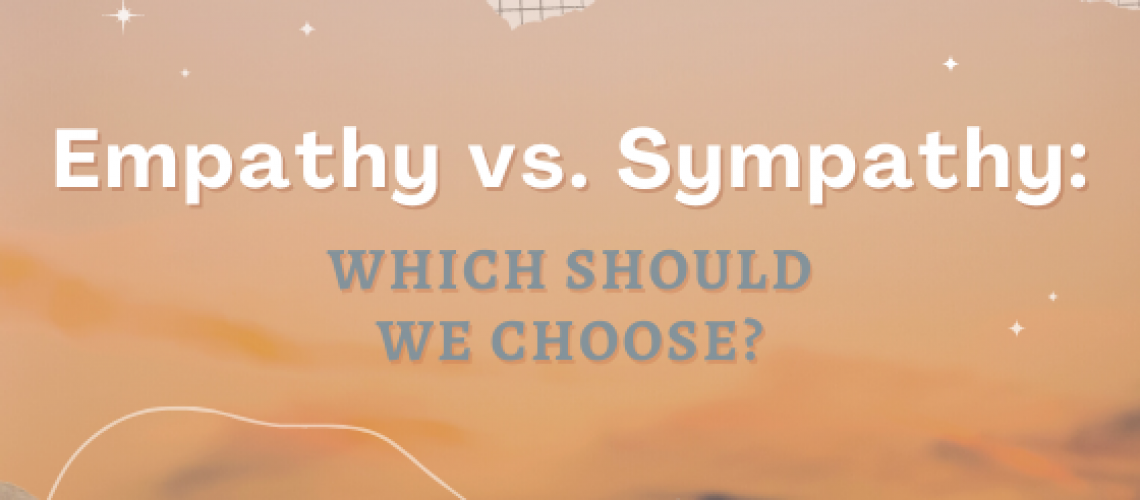The phrase “Empathy vs. Sympathy” is a phrase that may or not be familiar to you. Moreover, many people are confused by the slight differences between empathy and sympathy. I know I have spent a lot of time and effort trying to piece my way through them. Here is my understanding of the difference.
Imagine that a friend begins crying as they relate the story of their near fatal car crash. They explain how afraid they were that they might never walk again, and you also begin to cry. You have never been in that situation, but you feel sorry that your friend experienced it. This is a sympathetic emotional response.
Sympathy is often well-placed sorrow or pity for another’s circumstances or bad luck. There is an emotional distance between the you and the sufferer, since you do not fully understand the emotions that the sufferer is experiencing.
Now, imagine a child falls and skins their elbow. You rush to comfort them. There is a phantom pain in your knee from where you fell when you were young, and you remember how and why you felt the way that you did. This is an empathetic emotional response.
Empathy is identifying oneself in the sufferer. Although you may have had a slightly different experience, you are still able to recognize the emotion and feel something similar within yourself. Empathy shows the sufferer that they are not alone and that they are seen and heard.
The difference between these two emotions is slight, but the need for empathy in human service is far higher than most people realize. Empathy gives us a better foundation for practicing compassion. We can take our own experience with suffering and see how best to address the needs of the human being in front of us. 20th century priest and psychologist Henri Nouwen said it best when he explained that:
“Nobody escapes being wounded. We are all wounded people, whether physically, emotionally, mentally, or spiritually…. When our wounds cease to be a source of shame, and become a source of healing, we have become wounded healers.”
Practicing empathy is creating a wellspring of healing from our “wounds” and experiences with suffering, for it is a natural springboard into action. Empathy is the communion within suffering that provides a foundation from which the sufferer can move forward without feeling isolated or alone.
So, should we practice empathy or sympathy when we serve others?
The basis of service is human connection, and empathy is one of the deepest connections that a human can experience. It is the coming together of two spirits in the pursuit of healing. It is the backbone of compassion and the foundation of support.
Whenever possible, we must choose empathy.
- Maria Lotti, YES Intern




